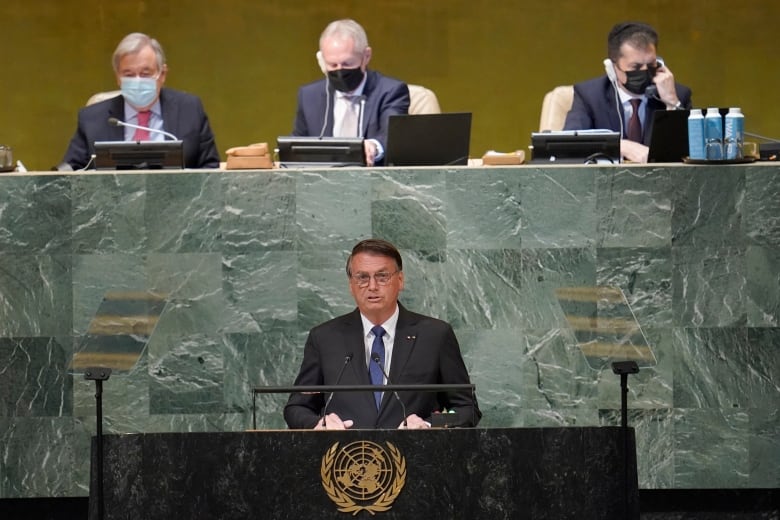[ad_1]
The world’s problems seized the spotlight Tuesday as the UN General Assembly opened on Tuesday with dire assessments of a planet beset by escalating crises and conflicts that an aging international order seems increasingly ill-equipped to tackle.
After two years when many leaders weighed in by video because of the coronavirus pandemic, now presidents, premiers, monarchs and foreign ministers gathered almost entirely in person for diplomacy’s premier global event.
But the tone was far from celebratory. Instead, it was the blare of a tense and worried world.
“We are gridlocked in colossal global dysfunction,” Secretary-General António Guterres said, adding that “our world is in peril — and paralyzed.”
He and others pointed to conflicts ranging from Russia’s six-month-old war in Ukraine to the decades-long dispute between Israel and the Palestinians. Speakers worried about a changing climate, spiking fuel prices, food shortages, economic inequality, migration, disinformation, discrimination, hate speech, public health and more.

Guterres started out by sounding a note of hope, however. He showed a video of the first UN-chartered ship carrying grain from Ukraine — part of the deal between Ukraine and Russia that the United Nations and Turkey helped broker — to the Horn of Africa, where millions of people are on the edge of famine. It is, he said, an example of promise and hope “in a world teeming with turmoil.”
Russia’s war top of mind
Russia’s invasion of Ukraine topped the agenda for many speakers. The conflict has become the largest conflict in Europe since World War II and has opened fissures among major powers in a way not seen since the Cold War.
Meanwhile, the loss of important grain and fertilizer exports from Ukraine and Russia has triggered a food crisis, especially in developing countries, and inflation in many nations.
As Jordan’s King Abdullah II noted, well-off countries that are having unfamiliar experiences of scarcity “are discovering a truth that people in developing countries have known for a long time: For countries to thrive, affordable food must get to every family’s table.”
In an impassioned speech to the assembly, French President Emmanuel Macron said no country can stand on the sidelines in the face of Russia’s aggression. He accused those who remain silent of being “in a way complicit with a new cause of imperialism” that is trampling on the current world order and is making peace impossible.
Brazil President Jair Bolsonaro, traditionally the first speaker, called for an immediate ceasefire in Ukraine, protection of civilians and “the maintenance of all channels of dialogue between the parties.” He opposed what he called “one-sided or unilateral” Western sanctions, saying they have harmed economic recovery and have threatened human rights of vulnerable populations.

Neither Ukraine nor Russia has yet had its turn to speak. The assembly has agreed to allow Ukrainian President Volodymyr Zelenskyy to speak by video, over objections from Russia and a few of its allies.
Zelenskyy’s speech is expected Wednesday, as is an in-person address from U.S. President Joe Biden. Russian Foreign Minister Sergey Lavrov is due to take the rostrum Saturday.
Nearly 150 leaders to speak
Nearly 150 heads of state and government are on the latest speakers’ list, a high number reflecting that the United Nations remains the only place not just to deliver their views but to meet privately to discuss the challenges on the global agenda — and hopefully make some progress.
Prime Minister Justin Trudeau’s two-day visit began Tuesday with a bilateral meeting with Chandrikapersad Santokhi, the president of Suriname, this year’s chair of Caricom, a political and economic coalition of 15 member-states throughout the Caribbean.
The rest of Trudeau’s UN agenda is laden with meetings on subjects close to his heart: climate change, gender equality and sustainable development, among others.
Later Tuesday he was scheduled to take part in a roundtable with former U.S. secretary of state Hillary Clinton on the virtues of inclusive job growth.
The death of Queen Elizabeth and her funeral in London on Monday, which many world leaders attended, created last-minute headaches for the high-level meeting. Diplomats and UN staff have scrambled to deal with changes in travel plans, the timing of events and the logistically intricate speaking schedule for world leaders.

[ad_2]
Source link



